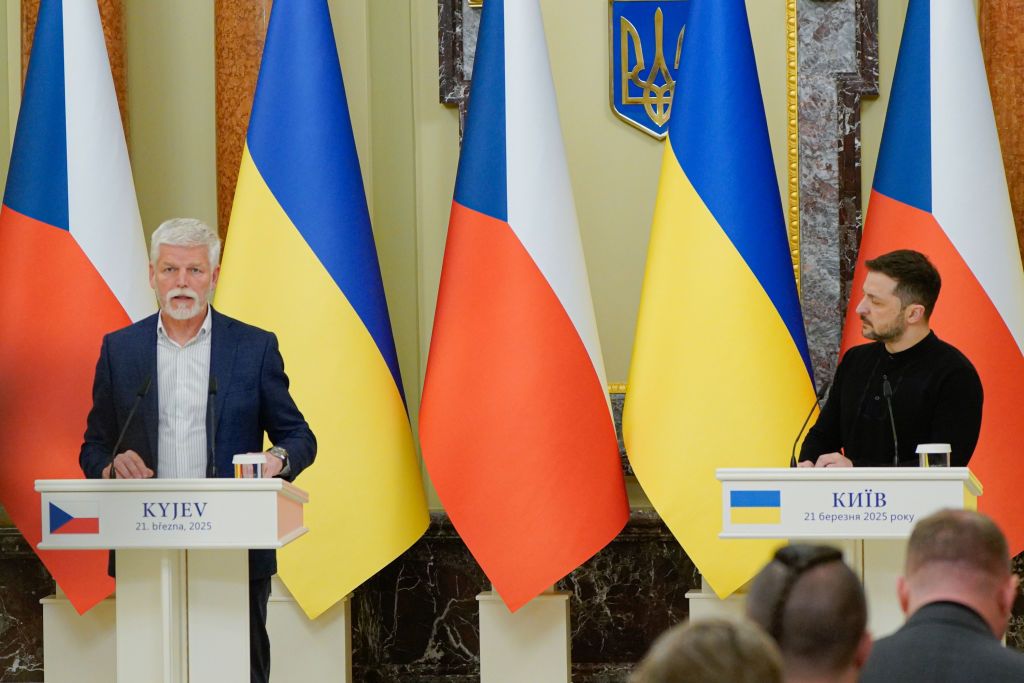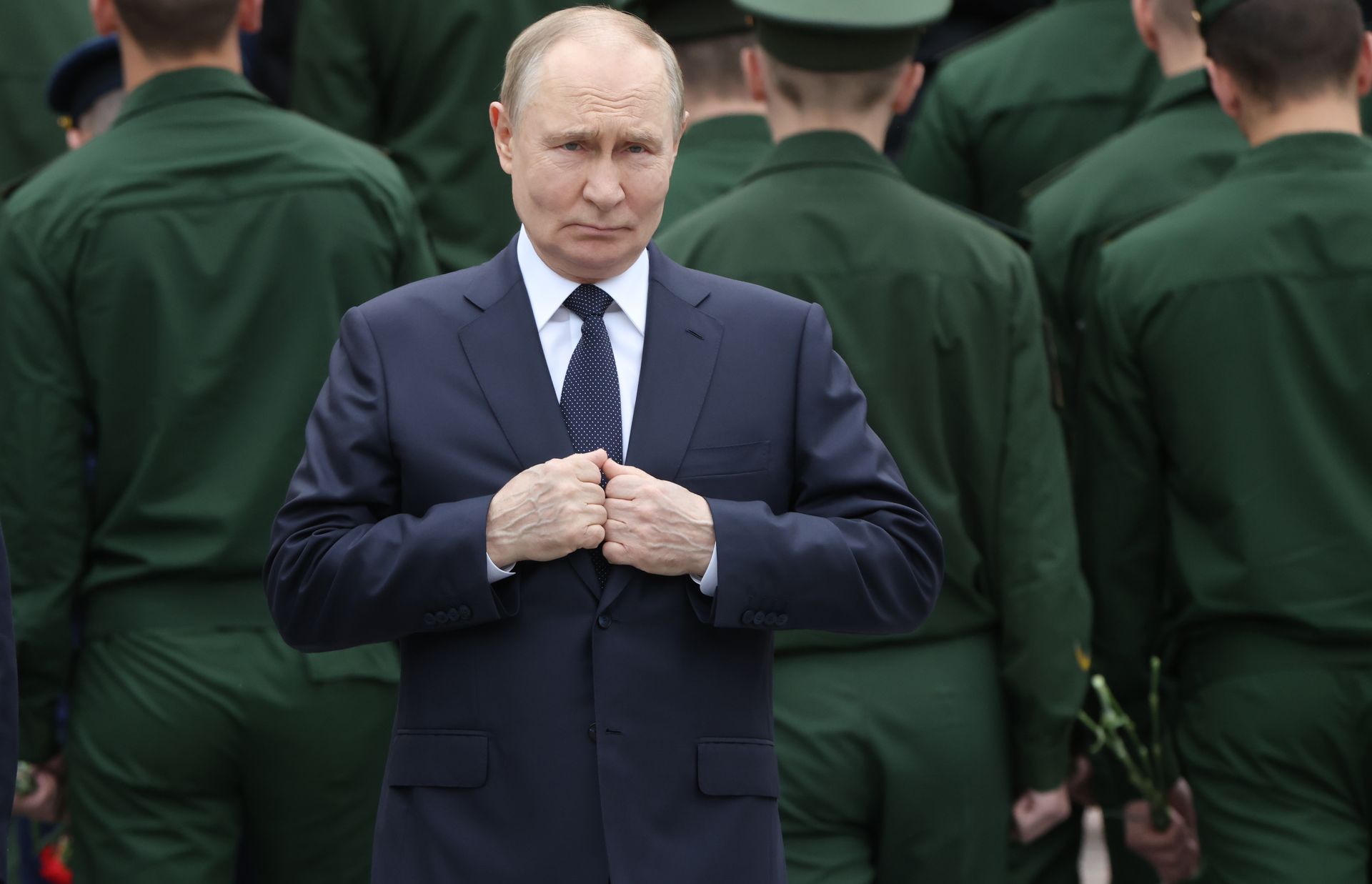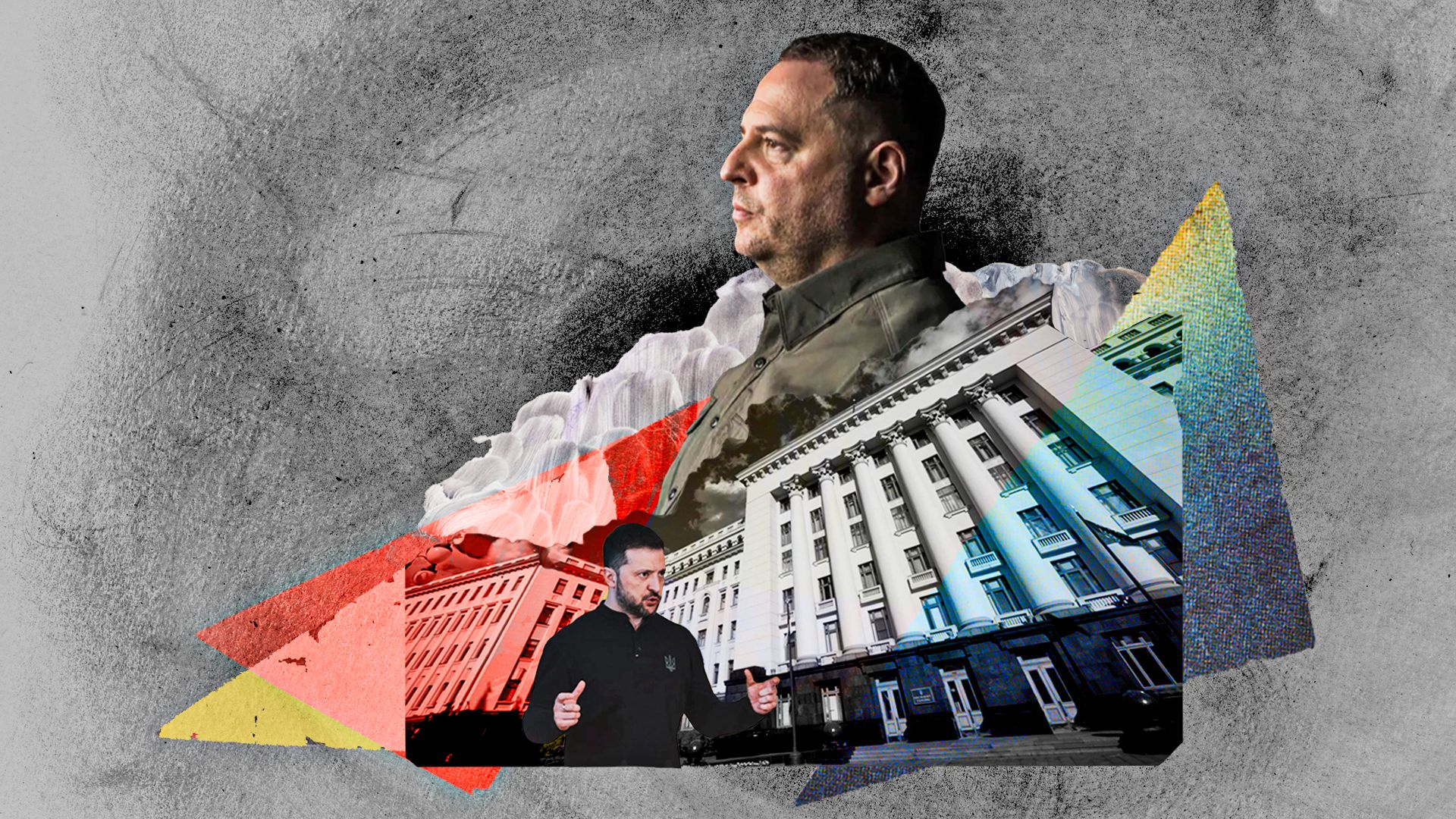Serbia’s indirect arms sales to Ukraine highlight fractures in its longstanding relationship with Russia

Serbia’s President Aleksandar Vučić speaks to the media before the EU–Western Balkans Summit in Brussels, Belgium, on Dec. 18, 2024. (Pier Marco Tacca / Getty Images)
Serbia's foreign policy has long been one of multiple vectors, rooted in a balancing act between the West, Russia, and China.
But the war in Ukraine and mounting pressure from both sides suggest this strategy may no longer be sustainable.
Caught between U.S. sanctions, stalled EU accession, and Russian gas blackmail, Belgrade uses indirect arms sales to Ukraine as leverage — as well as a chance to fill the pockets of Serbian arms makers.
Just months after freezing arms exports under pressure from Moscow, Serbian leader Aleksandar Vucic is once again offering ammunition to European countries, even if it ends up eventually in Ukrainian hands.
Experts say these turnarounds should not be seen as a sign of Serbia's realignment, but as an opportunistic effort to appease both geopolitical power blocs.
"We can tell that this balancing act is definitely reaching its limits," Strahinja Subotic, a senior researcher at the European Policy Center in Belgrade, tells the Kyiv Independent.
Serbia's multi-vector foreign policy
Though critics have often described Serbia's foreign policy as favoring Moscow, the truth is more nuanced.
Katarina Djokic, an arms transfers expert at the Stockholm International Peace Research Institute (SIPRI), called Belgrade's foreign policy "very opportunistic and not always coherent."
Serbia has been an EU candidate member since 2012, and the European bloc accounts for 60% of the country's total trade.
"The EU is the main investor, main financial provider in Serbia," says Engjellushe Morina, a Balkan politics and foreign policy expert at the European Council on Foreign Relations. "But with Russia, it is a little bit deeper than that."

Moscow maintains a close partnership with the Western Balkan country, drawing on shared Orthodox heritage, a historical distrust of the West, and broad pro-Russian sentiments among the Serbian population.
Serbia benefits not only from cheap Russian gas, but also, as Morina notes, from a Russian veto at the United Nations Security Council, which blocks Kosovo's U.N. membership.
Belgrade has also been working closely with Russian intelligence services and promoting pro-Moscow messaging, says Frauke M. Seebass, an expert on the Western Balkans at the Stiftung Wissenschaft und Politik (SWP) in Brussels.
"The EU's complacency in Serbia's balancing game has been a major factor allowing it to continue," the expert adds.
However, Serbia now finds itself caught between a rock and a hard place, as the war in Ukraine deepens the rift between Russia and the West.
Balancing act falling apart
In October, after numerous delays, the U.S. ended a sanctions exemption on Naftna Industrija Srbije (NIS), a Serbia-based oil and gas company controlled by Gazprom.
This cut the oil flow to the NIS refinery in Pancevo that covers around 80% of domestic fuel production, presenting a "huge problem" for Serbia, says Petr Cermak, a research fellow at the Prague-based Association for International Affairs.
Vucic recently said that Russia is seeking partners for NIS ownership to resolve the standoff, while the U.S. reportedly hopes that Serbia will nationalize the refiner.
Adding pressure, the EU called out growing "polarization" and the slow pace of reforms in Serbia in its recent enlargement report. This has displeased Belgrade, as it has long seen itself as a front-runner in EU accession, says Subotic.
Meanwhile, Russia's Gazprom has offered Serbia only a two-month extension on its gas contract, falling short of the expected new three-year agreement.
With Russia providing about 80% of Serbia's natural gas and winter approaching, Cermak sees this as a clear signal of pressure from Moscow.

Serbian ammunition — a new tool in an old game
In May, Russian intelligence accused Serbia of selling ammunition to Ukraine via third-party actors like Czechia or Bulgaria.
Moscow claimed that companies like Zenitprom, Sloboda, state-run Yugoimport SDPR, and others are funneling "hundreds of thousands of shells for multiple-launch rocket systems and howitzers, as well as a million small arms sounds" to the war zone.
Vucic responded by announcing a halt to all arms exports in June — but changed his tune a few months later.
Talking to German news outlet Cicero, Serbia's president said he had offered to sell ammunition to European partners who can then do "whatever they want with it" — even if it means deliveries to Ukraine.
But experts say that indirect sales of Serbian ammunition to Ukraine have been ongoing for years.
When Russia launched its full-scale invasion of Ukraine in 2022, Serbia adopted a typically ambiguous stance.
While affirming Ukraine's territorial integrity, Vucic has refused to join Western sanctions against Moscow. Subotic suggests that Serbia's indirect arms sales to Ukraine may be a way to appease the West without imposing sanctions.

For its size, Serbia boasts a robust defense industry, which plays a significant role in the country's job market. Many defense companies are state-owned or affiliated with the ruling party.
While manufacturing a range of arms from 155 mm howitzers to rocket launchers, the production focuses on small arms and ammunition, Djokic says.
Their compatibility with Soviet-era equipment, used by both Ukraine and Russia, makes them particularly useful on Ukrainian battlefields.
Vucic admitted to the Financial Times last year that Serbian ammunition worth around 800 million euros (over $920 million) has ended up in Ukraine over the past two or three years.
The Kyiv Independent has reached out to Ukraine's Defense Ministry for confirmation but has not received a response at the time of publication.
Cermak explains Vucic's most recent turnarounds on ammunition sales as possible responses to energy pressure from Russia and the U.S.
Despite its balancing act, "Serbia is too small a pawn in the bigger geopolitical game," now struggling to maintain a partnership with major powers, Subotic concludes.
Note from the author:
Hi, this is Martin Fornusek.
I hope you enjoyed this article. In our team, we believe fact-based and truthful reporting should be available to all — that's why we don't use a paywall.
If you'd like to help us provide you with more in-depth coverage of Ukraine's struggle against Russian aggression, European politics, and other topics, please consider joining the Kyiv Independent community.













